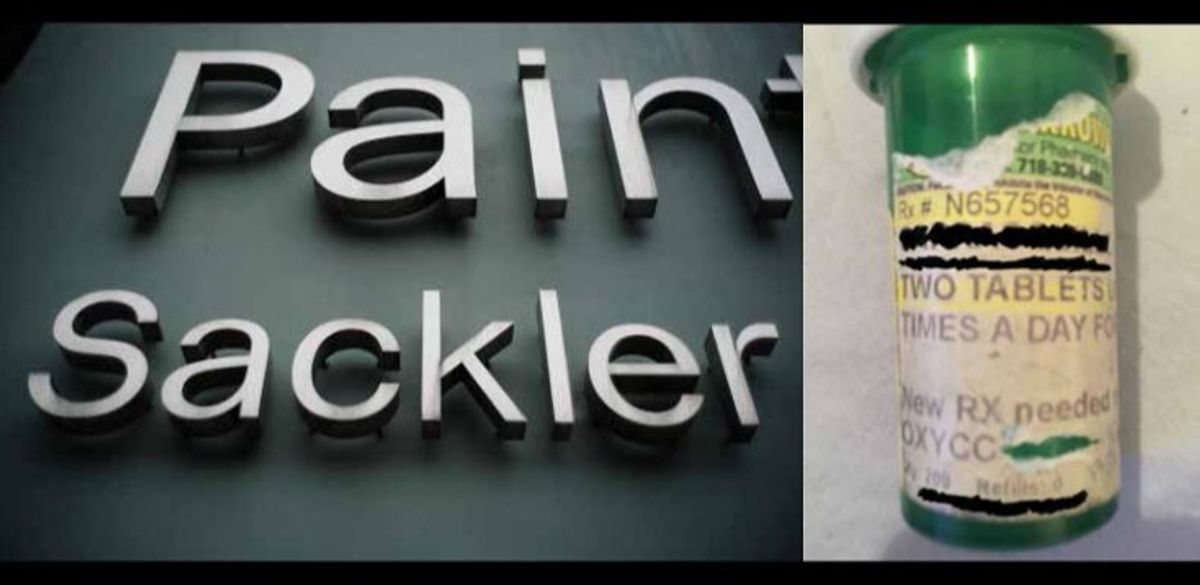The artist Nan Goldin and her newly formed activist group PAIN (Prescription Addiction Intervention Now) have launched an online petition calling for the Sackler family and Purdue Pharma to take responsibility for the opioid crisis in the US. The group demands that the Sacklers, whose fortune stems from the pharmaceutical company that created the prescription drug OxyContin, immediately pay for rehab treatment, opioid addiction education and the installation of “public dispensers of Narcan, the medicine that reverses an overdose, on every corner in America”.
The Change.org petition, which was launched on Friday with a link on the Instagram account @sacklerpain, insists that the Sackler family, which funds a number of arts organisations through its philanthropic foundations, “move their money into treatment and education”. The activist group says it intends “to put pressure on museums, art spaces and educational institutions to refuse future donations from the Sacklers” and “put social and political pressure on [the family] to respond meaningfully to this crisis”.
Goldin founded PAIN last week, when she published a personal essay in Artforum magazine that describes her own experiences with addiction. After successfully receiving treatment, she writes: “I became absorbed in reports of addicts dropping dead from my drug, OxyContin. I learned that the Sackler family, whose name I knew from museums and galleries, were responsible for the epidemic. This family formulated, marketed, and distributed OxyContin. I have decided to make the private public by calling them to task.”
“The opioid epidemic is a national crisis and Purdue Pharma’s role in it is morally abhorrent to me,” says Dr Elizabeth A. Sackler, the former chair of the Brooklyn Museum’s board of trustees and the founder of its feminist art centre, in a statement. “I admire Nan Goldin’s commitment to take action and her courage to tell her story. I stand in solidarity with artists and thinkers whose work and voices must be heard. My father, Arthur M. Sackler, died in 1987, before Oxycontin existed and his one-third option in Purdue Frederick was sold by his estate to his brothers a few months later. None of his descendants have ever owned a share of Purdue stock nor benefitted in any way from it or the sale of Oxycontin. I stand with all angry voices against abuse of power that harms or compromises any and all lives.”
A spokesman for Purdue Pharma said in a statement: “We are deeply troubled by the prescription and illicit opioid abuse crisis, and we are dedicated to being part of the solution. For more than 15 years, this company has a strong track record of addressing prescription drug abuse which includes collaborating with law enforcement, funding state prescription drug monitoring programs and enhancing interoperability, and supporting drug take back programs. In addition, we’ve recently announced educational initiatives aimed at teenagers warning of the dangers of opioids and continue to fund grants to law enforcement to help with accessing naloxone.”


